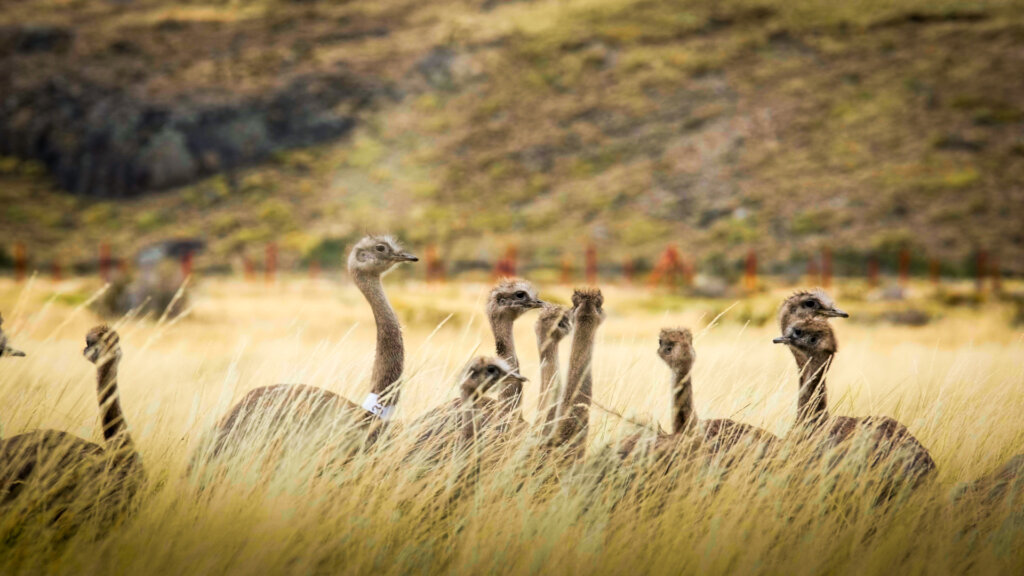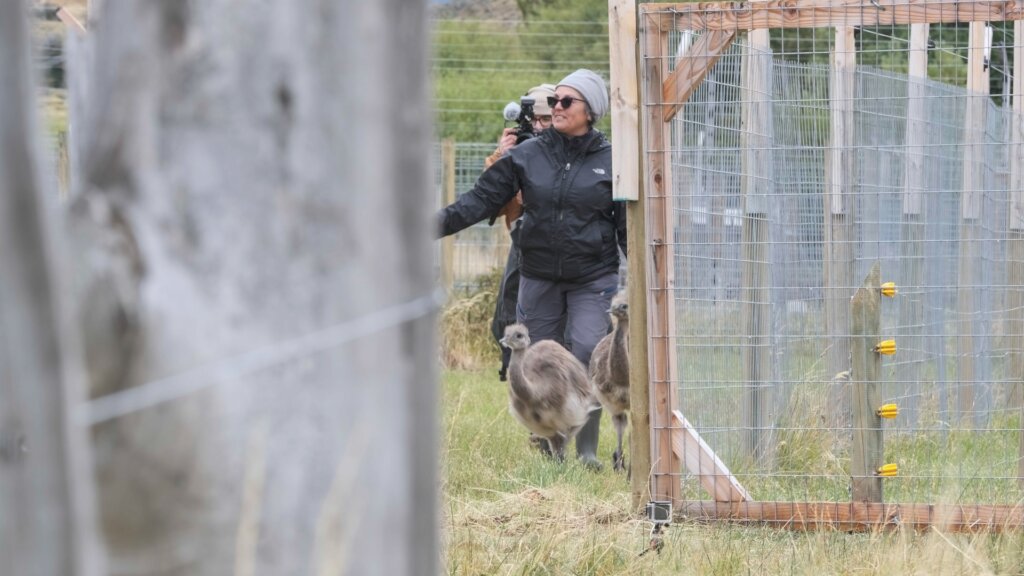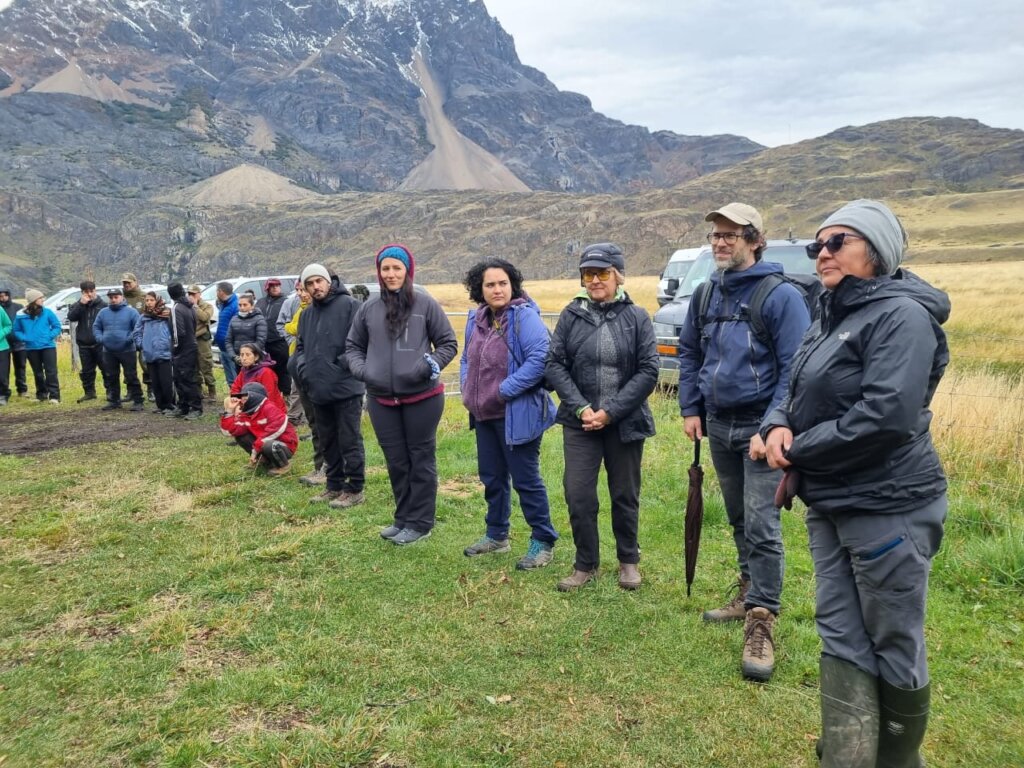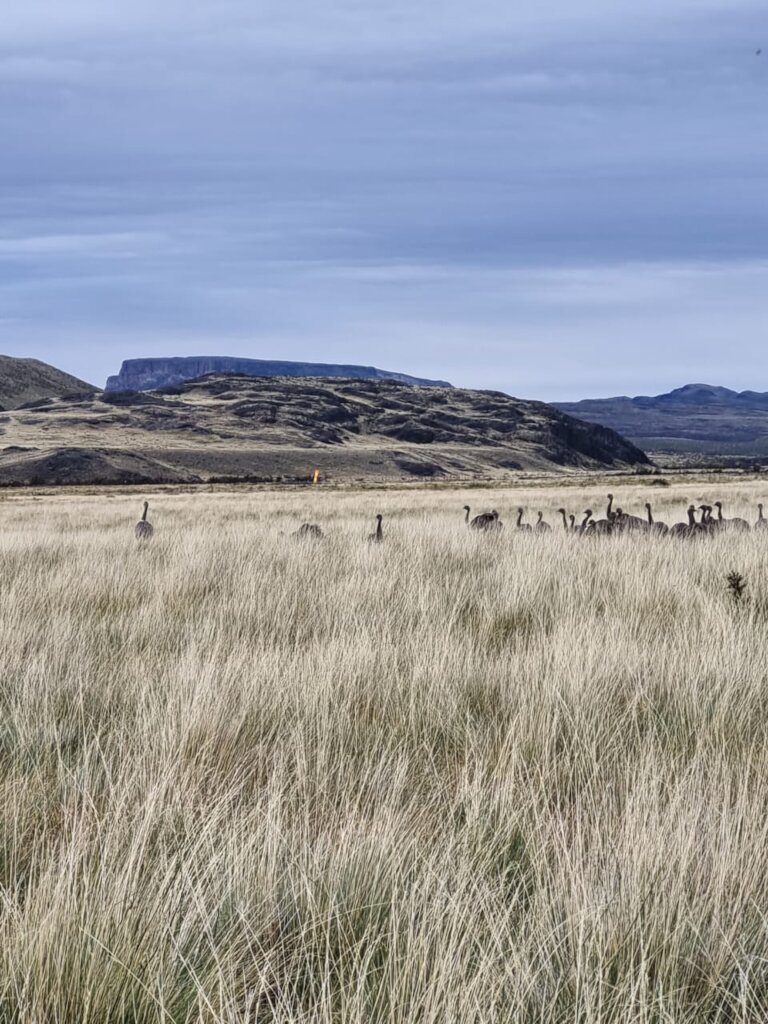By Rewilding Chile | Rewilding Chile
In a remarkable event amidst the vast Patagonian steppe of the Aysén region, 23 juvenile rheas were recently released into the wild. This initiative forms part of a concerted effort to revive the population of this iconic flightless bird in Chile, spearheaded by the collaborative endeavors of various organizations and communities.
The journey of these juvenile rheas began at the Quimán Reserve in Futrono, Los Ríos Region, where they were transported to Rewilding Chile’s Ñandú Conservation Breeding Centre at the Entrada Baker airport in January and February. Here, they underwent preparatory care before their release into the Chacabuco Valley within Patagonia National Park.
The Chacabuco Valley, once dominated by extensive sheep ranching for nearly a century, witnessed a severe decline in the rhea population due to habitat degradation and human interference. With only 20 individuals remaining, concerted efforts were imperative to reverse this decline and restore the native fauna.
Through collaborative efforts involving the Quimán Reserve, the National Park Agency, the Wildlife and Livestock Service, the Chilean Border Police, and Rewilding Chile, Patagonia National Park has embarked on a journey towards habitat restoration. The release of these 23 juvenile rheas marks a significant milestone in this endeavor.
Cristián Saucedo, Rewilding Chile’s Wildlife Director, emphasized the symbolic significance of this release, underscoring the collective efforts towards restoring the rhea population. He stated, “In this release, we see 23 young birds running around the Patagonian steppe, free, with the clear objective of reinforcing the local population of rheas... We have a big challenge, we know that, and we will continue with these efforts until we see the rhea running among their habitat again.”
Since the end of cattle ranching in 2008, we’ve witnessed nature's resilience. Our Darwin Rhea's Conservation and Recovery Programme, launched in 2014, has played a pivotal role in this journey, breathing new life into Patagonia’s iconic landscapes.
The release of 23 juvenile rheas is not just a conservation win; it's a celebration of our shared commitment to safeguarding Patagonia’s natural wonders. As we look ahead, our resolve remains unwavering: to see rheas roam freely and thrive in their ancestral home once more.
This is a testament to what's possible when we come together for a cause greater than ourselves. Join us in writing the next chapter of Patagonia’s wild legacy.
Links:
Project reports on GlobalGiving are posted directly to globalgiving.org by Project Leaders as they are completed, generally every 3-4 months. To protect the integrity of these documents, GlobalGiving does not alter them; therefore you may find some language or formatting issues.
If you donate to this project or have donated to this project, you can recieve an email when this project posts a report. You can also subscribe for reports without donating.
Support this important cause by creating a personalized fundraising page.
Start a Fundraiser


